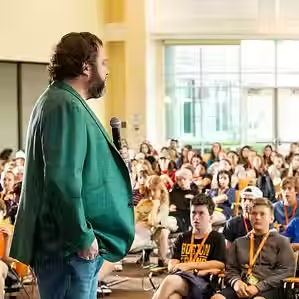Behind the Mic: How Event Podcasts Are Produced
- Mar 14
- 2 min read
Event podcasts have become a powerful tool for capturing and sharing live experiences, but what goes on behind the scenes to bring these audio productions to life? From recording on-site to post-production editing, event podcasts require careful planning, the right equipment, and a strategic approach to engaging listeners. Let’s take a look at how event podcasts are produced.

Pre-Production: Planning for Success
Before hitting the record button, thorough planning is essential. This phase includes defining the podcast’s goals, selecting topics, and securing guest speakers or panelists. Producers also coordinate logistics such as venue acoustics, necessary recording permissions, and backup plans for technical issues. Creating a well-structured script or outline ensures smooth episode flow while allowing room for organic discussions.
Recording: Capturing High-Quality Audio
Whether recording live at an event or in a studio, sound quality is paramount. Podcasters use high-quality microphones, portable recorders, and noise reduction tools to ensure crisp, clear audio. For live events, capturing audience reactions and background ambiance adds to the immersive experience, but background noise must be carefully managed to maintain audio clarity.
Post-Production: Editing and Enhancing the Audio
Once the event is recorded, post-production begins. This stage involves:
Editing out unwanted noise, pauses, or mistakes.
Enhancing sound quality through equalization and compression.
Adding intros, outros, and background music to create a polished final product.
Mixing multiple audio tracks for a seamless listening experience.
Distribution: Reaching the Right Audience
After editing, the final podcast episode is uploaded to streaming platforms such as Spotify, Apple Podcasts, and Google Podcasts. A strong promotional strategy—including social media marketing, email newsletters, and collaboration with event partners—helps expand its reach. Some podcasts also offer transcripts to improve accessibility and SEO visibility.
Future Innovations in Event Podcasting
With advancements in technology, event podcasts continue to evolve. The integration of AI-driven editing, real-time live streaming, and interactive listener engagement features are shaping the future of this format. As podcasting grows, events of all kinds can leverage this medium to extend their impact and connect with audiences worldwide.
Event podcasts are more than just recordings; they are storytelling tools that allow live experiences to be relived and shared on a global scale. By mastering the production process, podcasters can create compelling, immersive content that keeps audiences coming back for more.




Comments